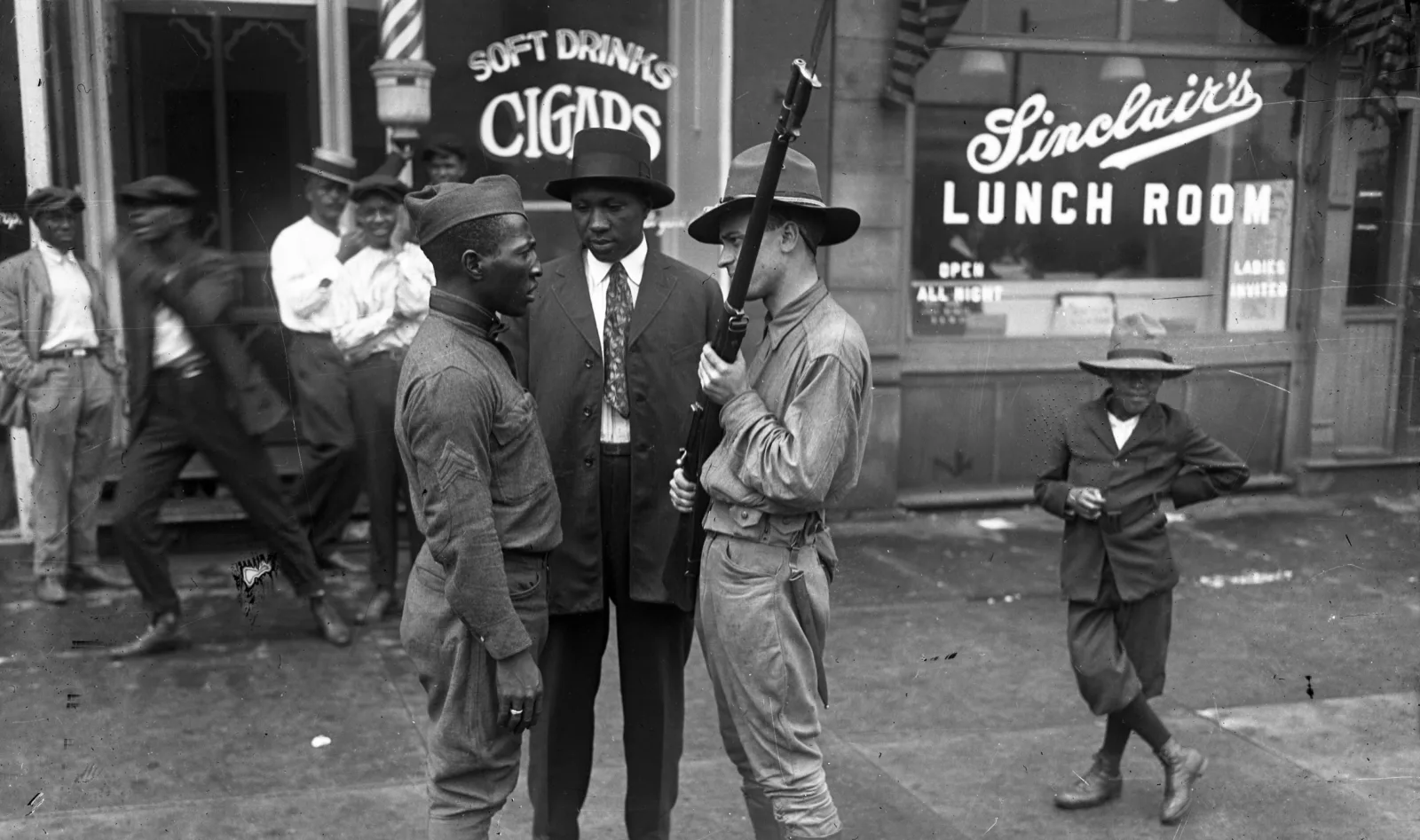The Newberry and its project partners announce Chicago 1919: Confronting the Race Riots, a year-long initiative to heighten the 1919 Chicago race riots in the city's collective memory, engaging Chicagoans in public conversations about the legacy of the most violent week in Chicago history.
The year of programming will begin Saturday, February 23, with an introductory public conversation at the DuSable Museum of African American History.
"The 1919 race riots largely haven’t been remembered and memorialized in Chicago, even though they’ve had an enormously powerful influence on how segregation has shaped the landscape of the city,"said Eve L. Ewing, a professor at the University of Chicago and an advisor on the Chicago 1919 project. "This project gives us all an opportunity to let critical conversations about history inform the way we think about the present and the future.”
The race riots began when Eugene Williams, an African American teenager, drowned after being struck on the head with a rock thrown by a white assailant at a segregated beach. When police arrested an African American man instead of the perpetrator, conflict erupted, leading to a week of violence that claimed 38 lives and underscored the deep-seated racial divisions within Chicago.
Funded by the National Endowment for the Humanities, the Chicago 1919 project is being coordinated by the Newberry in partnership with 13 other Chicago institutions.
"At the heart of the project are 11 dynamic public programs designed to encourage audiences to examine the mechanisms through which segregation and inequality have been created, solidified, and reinforced over the past 100 years,"said Liesl Olson, Director of Chicago Studies at the Newberry. "Joining our partners and the people of Chicago, we aim to come together in recognition and reconciliation, and imagine possible ways forward.”
Each Chicago 1919 program will focus on a specific expression of institutionalized racism, including policing, education, and housing. The calendar of events includes a guided bike tour of the Bronzeville neighborhood in Chicago; a discussion, led by City Bureau, about representations of race in the media; a screening of the ’63 Boycott documentary by Kartemquin Films, followed by a panel discussion on race, education, and activism; and a youth poetry slam, organized by Young Chicago Authors, showcasing the language of hip-hop and literature as a vehicle for resilience and protest.
Chicago 1919 is guided by the belief that the 1919 race riots can serve as a lens for understanding Chicago today. Racial tensions related to policing, migration, and housing all came to a head in 1919. By reflecting on the past 100 years, Chicagoans may see how our current racial divisions evolved from the race riots, as the marginalization of African Americans in Chicago became institutionalized through increasingly sophisticated forms of discrimination.
"The focus on racial tensions following the 1919 riots led to discriminatory practices that enabled inequities in housing, employment, education, and policing that have defined Chicago for the past century,"said Barbara Lumpkin, interim president and CEO of the Chicago Urban League, which was formed in 1916 to address the needs of African Americans migrating to the city. "As the Chicago 1919 series reflects on that historic moment, we also have an opportunity to explore real solutions to address systemic racial inequality and to redefine Chicago.”
People across Chicago are invited to share in our collective reckoning with a little-known yet tremendously consequential chapter in the city’s history.
Program registration, available to all, will open on a rolling basis starting January 22. For more information, please visit www.chicago1919.org.
Chicago 1919 Project Partners:
- Black Chicago History Forum
- Black Metropolis Research Consortium
- Blackstone Bicycle Works
- Chicago Architectural Club
- Chicago Collections Consortium
- Chicago History Museum
- Chicago Public Library
- Chicago Urban League
- City Bureau
- DuSable Museum of African American History
- Kartemquin Films
- Middle Passage Productions
- Newberry Library
- Young Chicago Authors
